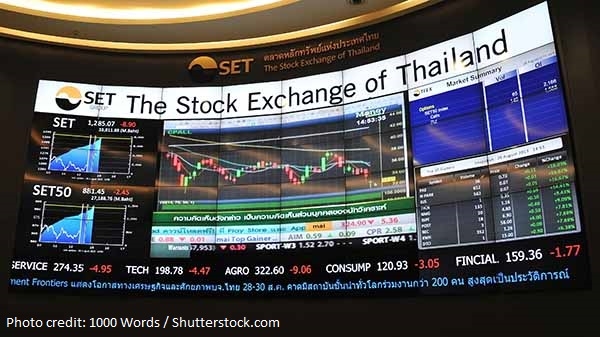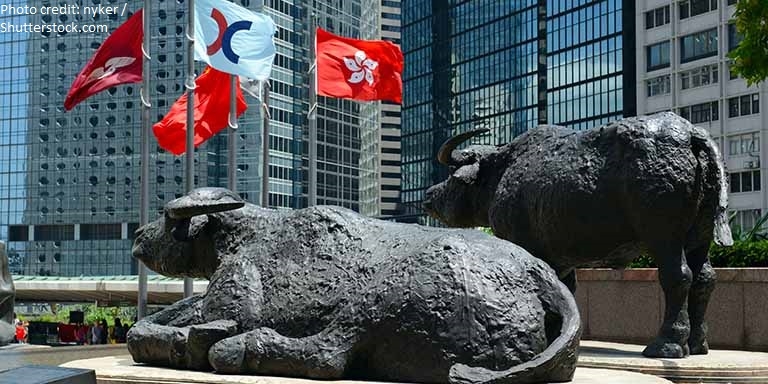The Hong Kong Trade Development Council (HKTDC), in collaboration with CCB International, recently compiled a report detailing the potential benefits of Hong Kong listings for Thai companies.
Overseas exposure
Most Thai companies rely on domestic capital markets for funding. Currently, six Thai companies are listed overseas, with one being listed on the Hong Kong Stock Exchange (HKEX).
Of the others, two are listed in Singapore and one each in New York, Taipei and Australia. They range in size from Singapore-listed Thai Beverage, with a market capitalisation of US$11.7 billion as of July, to information technology firm Platt Nera International, listed in Hong Kong, with a market cap of US$14 million.
The Stock Exchange of Thailand (SET), consisting of a main board and the Market for Alternative Investment (mai) for emerging companies, listed 788 companies as of July with a market cap of about US$529.6 billion. Among other major ASEAN peers, Kuala Lumpur had 962 listed firms with a market cap of US$367 billion and Singapore 662 firms valued at US$636 billion. HKEX, meanwhile, had 2,579 firms and a capitalisation of US$4.59 trillion.
For Thai companies, local fundraising is supported by government tax incentives. That may explain why SET has maintained a leading position for initial public offerings in ASEAN over the past few years.

Active market premium
When comparing HKEX and SET (including mai), in addition to the leads by far in terms of both market capitalisation and number of listed companies, the HKEX is also a more active stock market. The average daily market turnover of HKEX last year was US$17.7 billion, more than double the aggregate turnover of six key ASEAN exchanges. HKEX provides a larger pool of funds for IPOs, and also facilitates follow-up fundraising in the secondary market.
Requirements met
Although HKEX has a higher threshold in both its Main Board and GEM Board than SET and mai respectively, more than 90% of the 788 companies currently listed on SET meet the minimum market capitalisation requirement of listing on the GEM board of HKEX, and around one-fourth of the 788 companies even meet the capitalization requirement of listing for the Main Board of HKEX. Thai companies operating in consumer businesses and services, financial services and the real estate investment trust sector are seen as the best potential candidates to leverage on Hong Kong’s financial platform.
Thai companies’ need to fund their expansion beyond ASEAN is rising. With the Regional Comprehensive Economic Partnership (RCEP) coming into force in January this year, Hong Kong, as a leading international financial centre in the region, can provide a wider reach to international and Mainland China investors, who are now showing a growing interest in investing in the ASEAN region.
The RCEP, which comprises ASEAN countries as well as Mainland China, Japan, Korea, Australia and New Zealand, came into force at a time when there is a growing need for Thai companies to fund their expansion beyond ASEAN. RCEP is the largest free trade bloc in the world, accounting for about 30% of global GDP and population.
The agreement provides for the liberalisation of services and investment across different sectors, which will bring new opportunities for foreign RCEP companies investing in Thailand, and also for the growing Thai services sector as it seeks to expand into other RCEP economies. Research interviewees for the HKTDC report revealed that some Thai companies, particularly in the financial services sector, are planning to expand in the RCEP region and are seeking listing opportunities overseas.
SPAC advantage
Hong Kong’s newly launched special purpose acquisition company (SPAC) listing regime, which provides a new and attractive route for listing, is a good fit for high-growth, pre-revenue IT and high-tech Thai companies.
While Hong Kong is perceived as a prestige listing venue, more active outreach would help increase awareness amongst Thai companies to encourage them to use Hong Kong as a financial platform to tap the new opportunities.
Companies surveyed by HKTDC viewed consumer businesses, particularly tourism-related ones, financial services, REITs and information technology, biotech and other high-technology sectors, as well as manufacturing and resource-related sectors as the most promising areas to tap the Hong Kong market.
Related link
Link to the article

